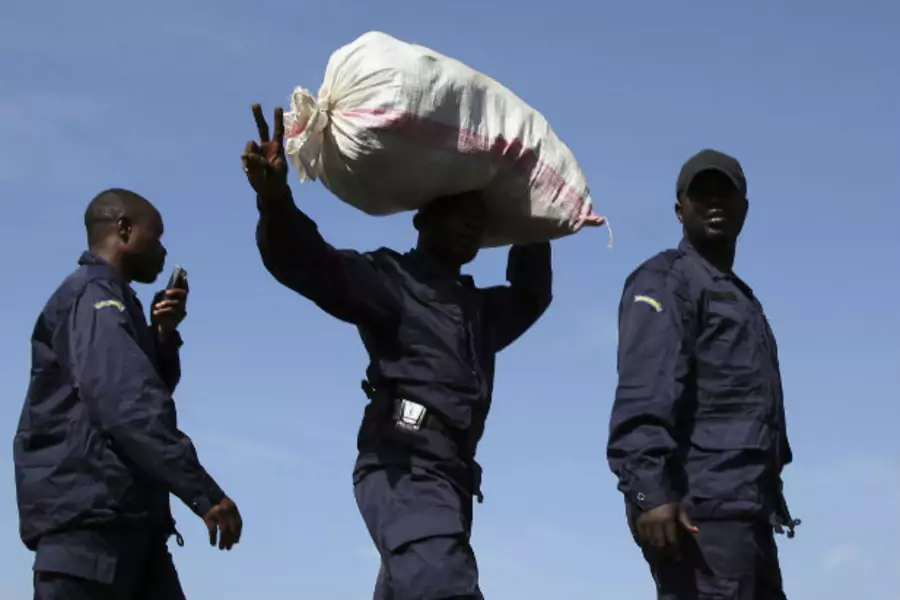More on:
Search for Common Ground, a distinguished Washington-based NGO devoted to international conflict resolution and peace building that has long focused on the Great Lakes Region, organized a special two-day meeting of the Great Lakes Policy Forum (GLPF) earlier this week–the 165th meeting of the Forum. The Council on Foreign Relations and the Nitze School of International Studies at Johns Hopkins hosted and participated, along with many other Congo-watchers from the executive and legislative branches, NGOs, and academia. Search for Common Ground arranged for the presence of experts from the Congo, and there were representatives of the Congolese diaspora in the United States.
The focus was on local and regional issues on the first day, international perspectives on the second, when diplomats from Congo, Rwanda and Uganda were present. The first day was under Chatham House Rules, the second was on the record. Assistant Secretary Johnnie Carson in formal remarks urged that the international community accord Congo a higher priority than it does at present, and he laid out a U.S. policy framework.
These discussions took place in the immediate aftermath of the signing in Addis Ababa of a UN-sponsored framework agreement by eleven nations that aims at ending the violence in Eastern Congo.
With respect to internal Congolese issues, there was a consensus on the importance of improving governance, security sector reform, and the need to develop and harness political will with respect to corruption and a host of other ills. There was also agreement on the need to review and probably expand the UN’s mandate in Congo. As for the international dimension of the Congolese crisis and the intervention of Rwanda and Uganda, there were “three different narratives” that, in effect, were irreconcilable. The Congolese participants (and UN agencies and many independent observers) argue that Rwanda and Uganda are actively involved in supporting militias and rebels in eastern Congo, while Rwanda and Uganda strenuously deny it.
Assistant Secretary Carson noted that there have been more than five million deaths in Congo since the 1997 departure of Mobutu Sese Seko, a dictator who ruled and looted the country for thirty-two years. That the international community has permitted such carnage is a scandal. I find the Congolese charges against Uganda and Rwanda credible. At the very least the international community should be pressuring those two states to desist, no matter how useful their support is on other issues.
More on:
 Online Store
Online Store
